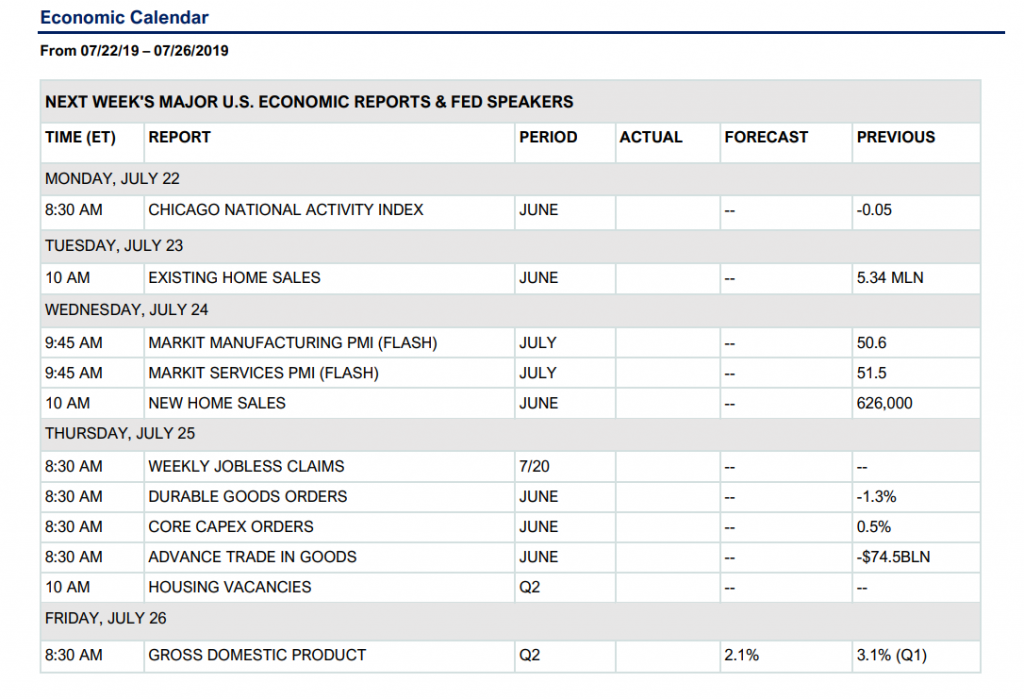After a week of sharp partisanship focused on President Donald Trump’s harsh comments towards four left-leaning Democratic House representatives, the substantive focus remains the efforts of Congressional leaders and the Administration to find a resolution to the fiscal cliff that could be reached as early as the first week of September. The scheduled vacation departure of the House at the end of next week adds heightened drama to Washington in the coming days.
The Treasury Department projects that under their most conservative estimates the US government would hit the debt ceiling, and default on payments, as early as September 9 or 10. Congressional Democrats led by Speaker Nancy Pelosi would like a two-year deal that raises spending ceilings for both defense and domestic spending as well as deal with the debt issue. While both sides report progress, the big uncertainty is whether or not the President will accept a deal negotiated by Treasury Secretary Steven Mnuchin. There are persistent rumors that the President’s chief of staff Mick Mulvaney, a deficit hawk, will convince Trump to walk away from a deal even if a temporary default is possible.
Separately, Congressional representatives questioned Facebook’s (FB) David Marcus, head its digital currency project, a few days ago about the proposed non-fiat digital currency, Libra. Even for nonbelievers in crypto/blockchain, this brings up several pertinent policy topics. In particular, the two-day hearing highlighted privacy issues posed by FB—and Google (GOOGL): anti-trust concerns that have become part of the 2020 electoral rhetoric, and the question of what role social media companies should play, if any, in offering financial services. There were also notable distinctions made between permissioned currencies like Libra and open public crypto-currencies such as Bitcoin, primarily relating to the freedom to enter the network and centralization of governance and custody.
Legislators’ questions were aggressive, occasionally hostile, and generally cynical towards FB’s efforts. This broad-based animosity is likely connected to the company’s long and well-known history of regulatory and privacy related missteps. During the hearings, lawmakers routinely cited these previous privacy issues as evidence that neither they nor Facebook’s users should trust it to ensure Libra will protect consumers and comply with the necessary regulations.
It is difficult to assess how the Administration will react to cryptocurrencies and blockchain technology. President Trump is a wild card but he clearly has grown annoyed with the left lean he sees in California-based technology companies. If he believes there’s a pro-Trump political argument to be made by attacking cryptocurrencies such as Bitcoin or related projects like Libra, then there is a risk he could intervene.
FB stocks fell ~1% over the course of the hearing, closing at $201.80 afterwards. Despite the legislator hostility the mild move isn’t surprising given that Libra’s providing additional revenue streams to the company is so far off in the future.







